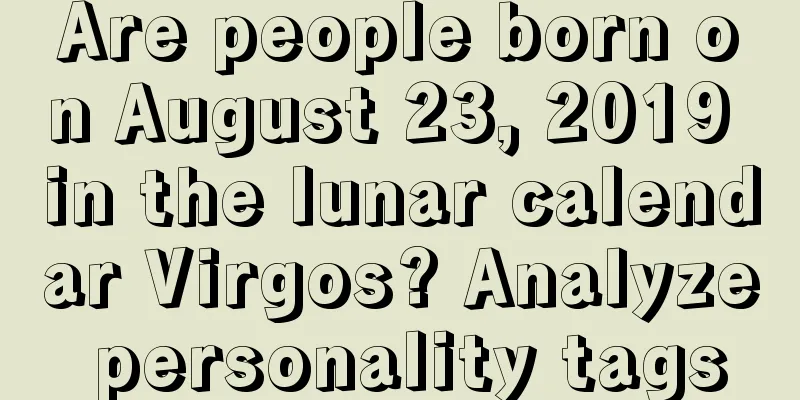Is Laba Festival a Buddhist festival? What legends are there about Laba Festival?

Laba Festival is the first festival in the twelfth lunar month. There is a saying that "after Laba Festival it is the New Year". Want to know more about Laba Festival? The reason why the twelfth month of the lunar calendar is called the La Yue is because the ancients regarded the twelfth month of the lunar calendar as a month for sacrifices. Different months have different cultural customs. If you want to know more about the twelfth month of the lunar calendar, please follow Mr. Shui Mo’s website.Is Laba Festival a Buddhist festival?Laba Festival, also known as the Dharma Treasure Festival, Buddha's Enlightenment Festival, and Enlightenment Meeting, was originally a Buddhist festival to commemorate the Buddha's enlightenment. Later, it gradually became a folk festival in my country.Laba Festival is one of the grand festivals in Buddhism, and the most important custom is "drinking Laba porridge". According to Buddhist records, before Sakyamuni attained enlightenment, he practiced asceticism for many years until he became emaciated. He then realized that asceticism was not the ultimate way to liberation, and decided to give it up. At this time, he met a shepherdess who presented him with gruel. After eating it, his strength was restored. He sat under the Bodhi tree and meditated. On December 8th, he achieved enlightenment. To commemorate this event, Buddhists hold a ceremony on this day and cook porridge with rice and fruits to offer to the Buddha. It is recorded in "Dreams of the Southern Song Dynasty" by Wu Zimu of the Southern Song Dynasty: "The eighth day of this month is called Laba in temples. Large temples all prepare porridge with five flavors, which is called Laba porridge." Since Buddhism was introduced to China, temples have made porridge with fragrant grains and fruits and presented it to disciples and believers. On the eighth day of the twelfth lunar month, various temples hold ceremonies, imitating the story of the shepherdess offering gruel to the Buddha before his enlightenment. They use fragrant grains and fruits to cook porridge as an offering to the Buddha, which is called Laba porridge. It is said that after drinking this kind of porridge, one can get the blessing of Buddha. Therefore, Laba porridge is also called "Longevity and Fortune Porridge", "Blessed Virtue Porridge", and "Buddha Porridge". "Laba" was originally a Buddhist festival, but after generations of evolution, it gradually became a household folk festival. What legends are there about Laba Festival?one,Legend has it that Laba Festival originated from the custom of "beating ghosts with red beans". Legend has it that Zhuanxu, one of the Five Ancient Emperors, had three sons who turned into evil ghosts after their death and specifically came out to scare children. In ancient times, people generally believed in superstitions and were afraid of ghosts and gods. They thought that strokes, illnesses, and poor health among adults and children were all caused by plague ghosts. These evil ghosts are not afraid of anything in the world except red beans, hence the saying “red beans can fight ghosts”. Therefore, on the eighth day of the twelfth lunar month, people cook porridge with red beans and adzuki beans to get rid of epidemics and welcome good luck. two, The legend of Laba Festival originated in the late Yuan Dynasty and early Ming Dynasty. It is said that when Zhu Yuanzhang was in prison and suffering, it was a cold day. Zhu Yuanzhang, who was cold and hungry, actually dug out some red beans, rice, red dates and seven or eight kinds of grains from the rat hole in the prison. Zhu Yuanzhang cooked these things into porridge. As that day was the eighth day of the twelfth lunar month, Zhu Yuanzhang named this pot of multi-grain porridge "Laba porridge" and enjoyed a delicious meal. Later, Zhu Yuanzhang pacified the world and became the emperor. In order to commemorate that special day in prison, he designated that day as Laba Festival and officially named the multi-grain porridge he ate that day as Laba porridge. three, Legend has it that Laba Festival originated from people's remembrance of the loyal minister Yue Fei. At that time, Yue Fei led his troops to fight against the Jin army in Zhuxian Town. It was the coldest time of winter. Yue's army was poorly clothed and hungry, and the people sent them porridge one after another. Yue's army had a hearty meal of "Thousands of Family Porridge" sent by the people, and returned with a great victory. That day was the eighth day of the twelfth lunar month. After Yue Fei's death, in order to commemorate him, people would cook porridge with grains, beans and fruits on the eighth day of the twelfth lunar month every year, and it eventually became a custom. Four, Legend has it that when Qin Shi Huang built the Great Wall, migrant workers from all over the country came here in response to orders. They were unable to return home for many years and had to rely on their families to send them food. Some migrant workers were separated from their homes by thousands of miles and could not receive food, which resulted in many of them starving to death at the Great Wall construction site. On the eighth day of the twelfth lunar month one year, the migrant workers who had no food to eat gathered together a few handfuls of grains, put them in a pot and cooked them into porridge. Each person drank a bowl of it, but in the end they still starved to death at the foot of the Great Wall. In order to mourn the workers who starved to death on the Great Wall construction site, people eat "Laba porridge" on the eighth day of the twelfth lunar month every year to commemorate them. five, According to legend, the old couple lived a hard-working and frugal life, and saved up a fortune. However, their beloved son was not ambitious and his wife was not virtuous, so they soon lost their family fortune. On the eighth day of the twelfth lunar month, the couple was freezing and hungry. Fortunately, the villagers and neighbors helped them and cooked a pot of "mixed porridge" made of rice, noodles, beans, and vegetables. It means: "Eat a bowl of mixed porridge and remember the lesson." This porridge helped the young couple get rid of their bad habits, get back on the right track, and support their family through hard work, and their lives got better day by day. The custom of eating porridge on Laba Festival is popular among the people. It is passed down by people in order to use this lesson to warn future generations. Do you want to know your own Bazi? Want to figure out where your golden marriage is? Click on the [Premium Calculation] below to calculate your horoscope and fortune! |
<<: When is Laba Festival in 2022? What is the saying about Laba Festival?
>>: Auspicious days in the twelfth month of the lunar calendar in 2021
Recommend
2018 End of Summer God of Wealth Direction, Pray to God of Wealth Direction
The position of the God of Wealth will change with...
How will people born in the year of the horse have good fortune on Labor Day 2017? Where should they travel?
Introduction: In early summer in May, the flamboya...
Is the fate of a baby girl born on the ninth day of the fourth lunar month in 2022 good?
The fate of a girl will be different depending on ...
Zodiac sign of a child born on June 18th of the lunar calendar in 2021, is it a Leo?
Constellations are divided according to the Gregor...
Is March 24, 2021 the Beginning of Summer? Is the Beginning of Summer a suitable day to sign a contract?
The third month of the lunar calendar is tradition...
Which day is suitable for marriage during this year's National Day? Which day is suitable for marriage during the National Day in 2021
On October 1, 2021, we celebrated our 72nd Nationa...
Is July 14th of the lunar calendar in 2019 an auspicious day? Is it a good time to travel far away?
The auspiciousness and inauspiciousness of each da...
What are the taboos and what are the things that cannot be done on the sixth day of the first lunar month?
The Spring Festival is one of the most important t...
Is September 23, 2019 suitable for picking up the car? What should I pay attention to when picking up a car?
When we have enough money to buy a car, we must c...
Is it good to give birth to a girl on November 29th of the lunar calendar in 2017? The direction of the God of Wealth and Happiness?
Every day has a different aura, which affects peop...
Analysis of the 20th day of the third lunar month in 2022. Can we pray on that day?
The benefits of praying at different times are dif...
Is it good for a baby boy to be born after the Lesser Heat in 2019 and be of the Pig zodiac sign?
After the Lesser Heat solar term, the sixth lunar ...
Is Grain Full an auspicious day in 2021? What season is Grain Full?
The rivers are small and full, and Grain Full is o...
Can we add soil to new graves during Qingming Festival? What are the customs of visiting new graves during Qingming Festival?
Qingming Festival is a traditional festival for co...
Is it suitable to travel during the Lantern Festival in 2021? The beautiful meaning of the Lantern Festival
Introduction: In our traditional concept, we need ...









